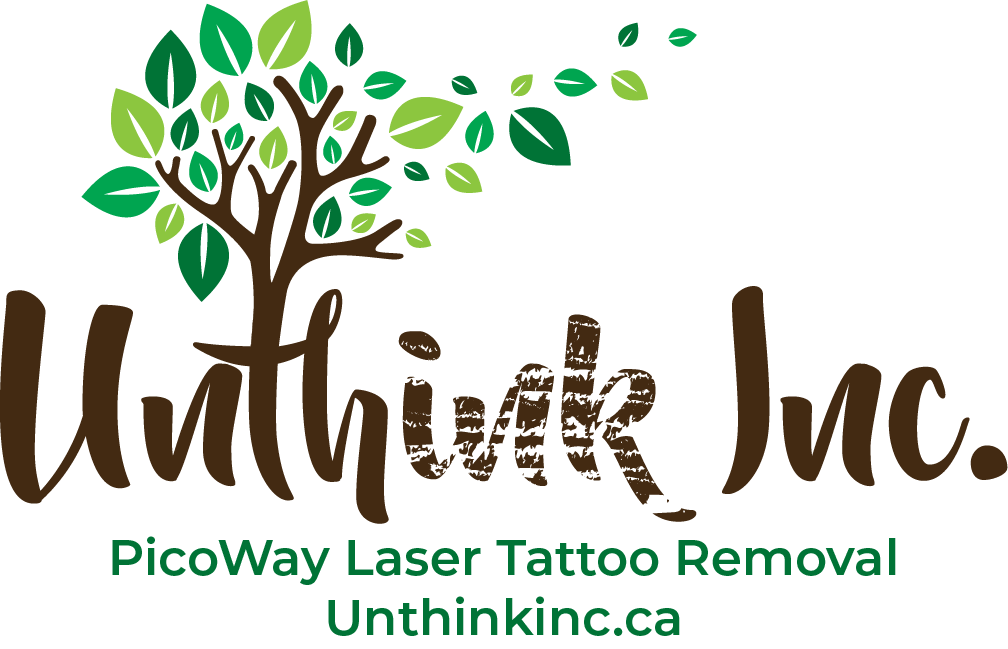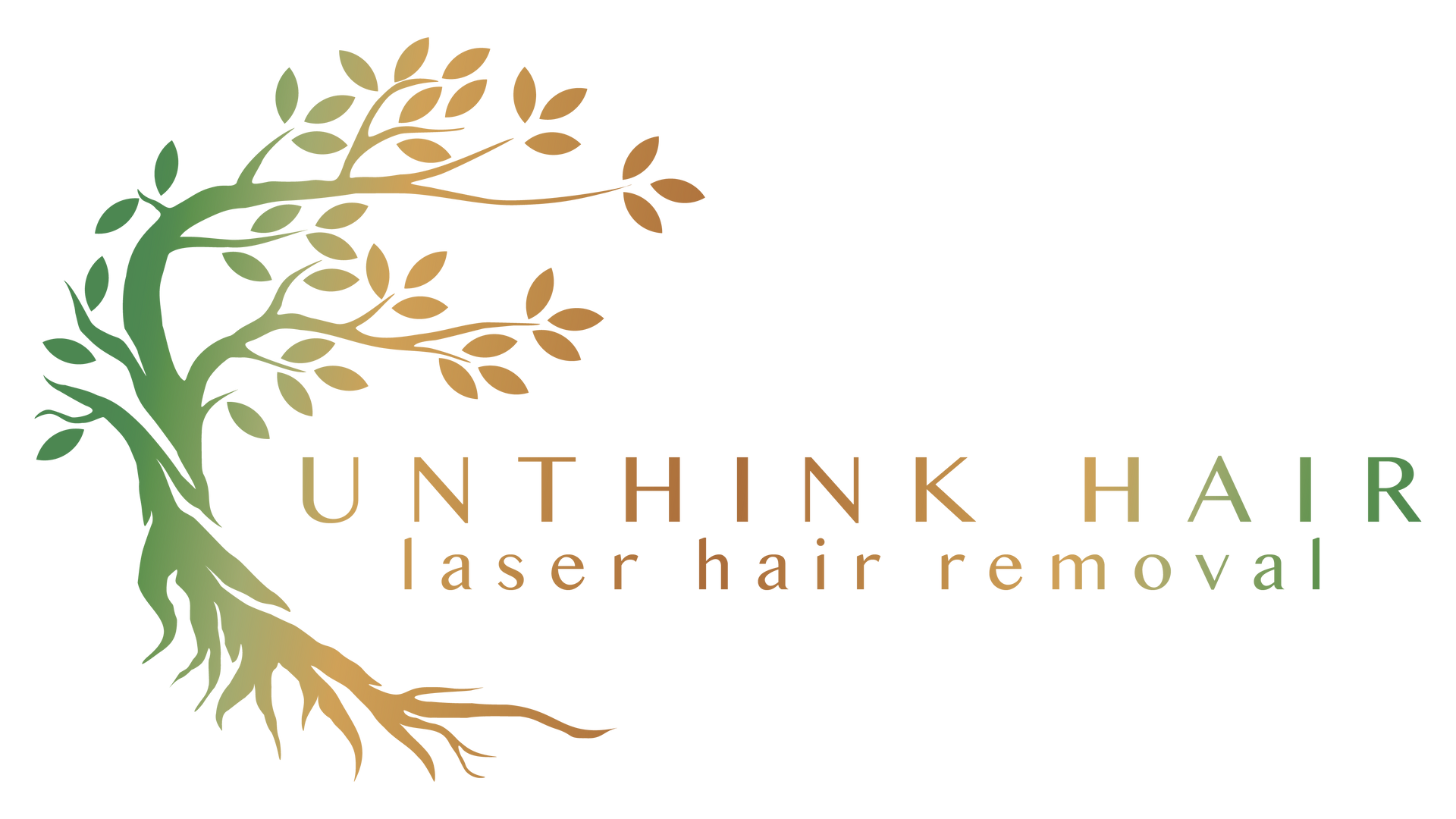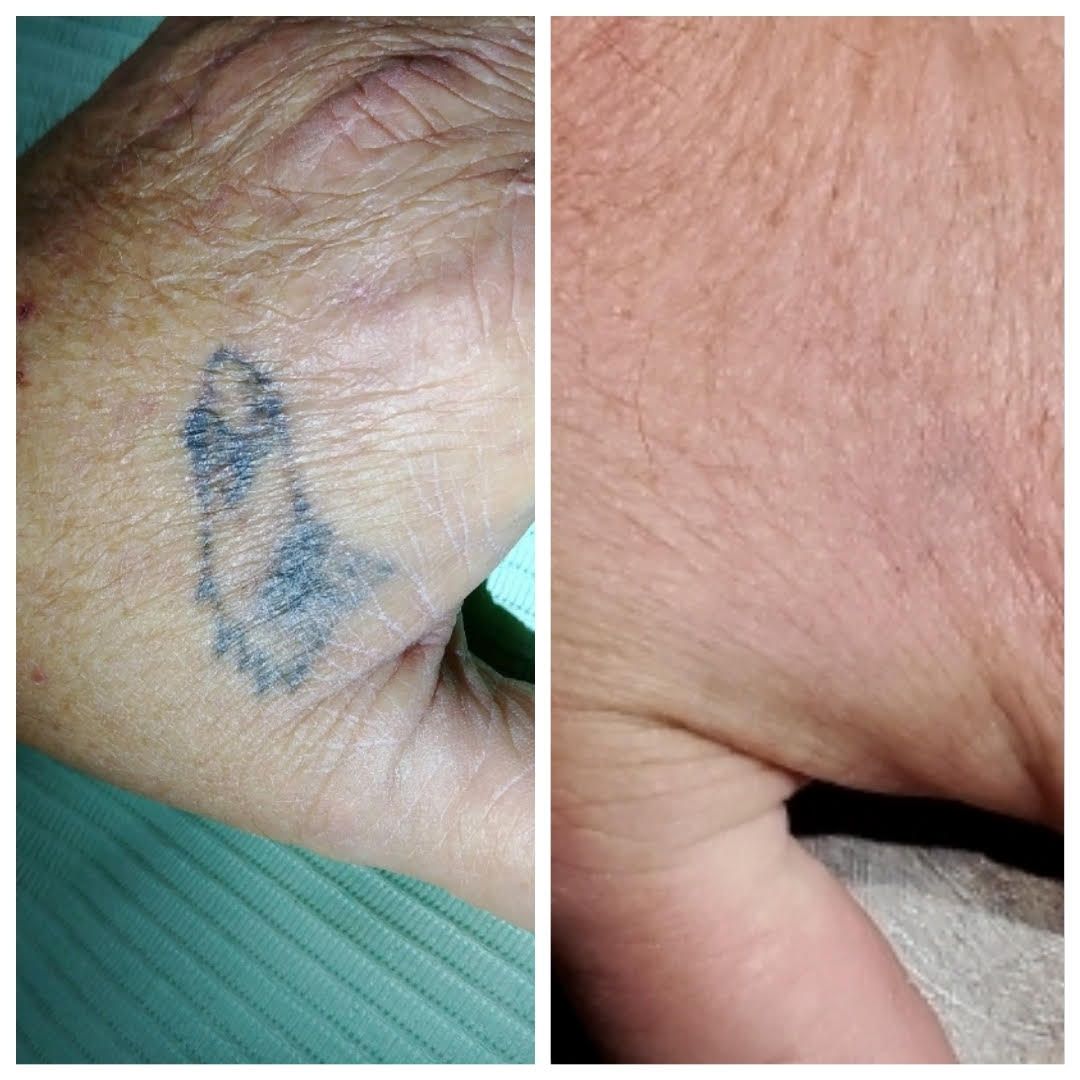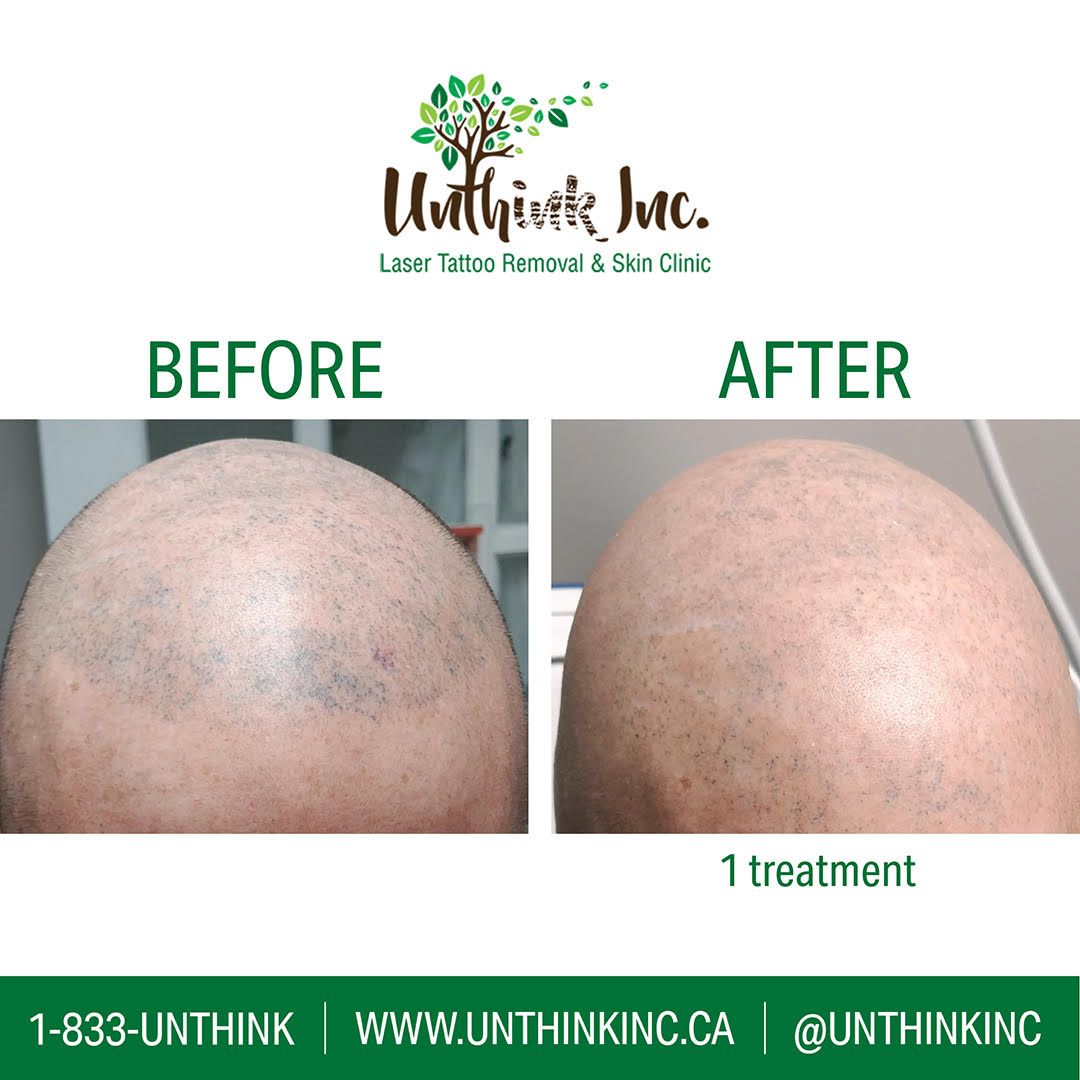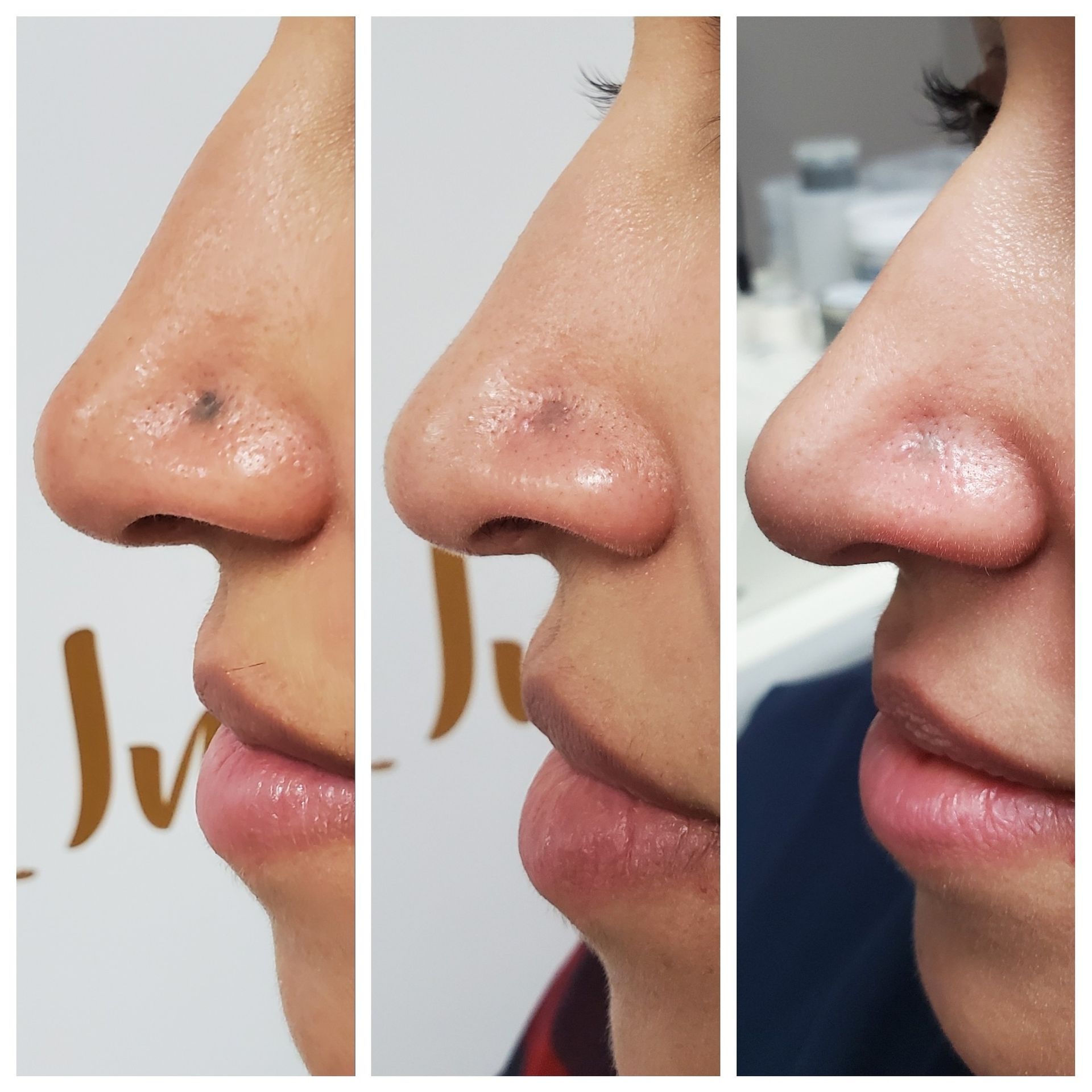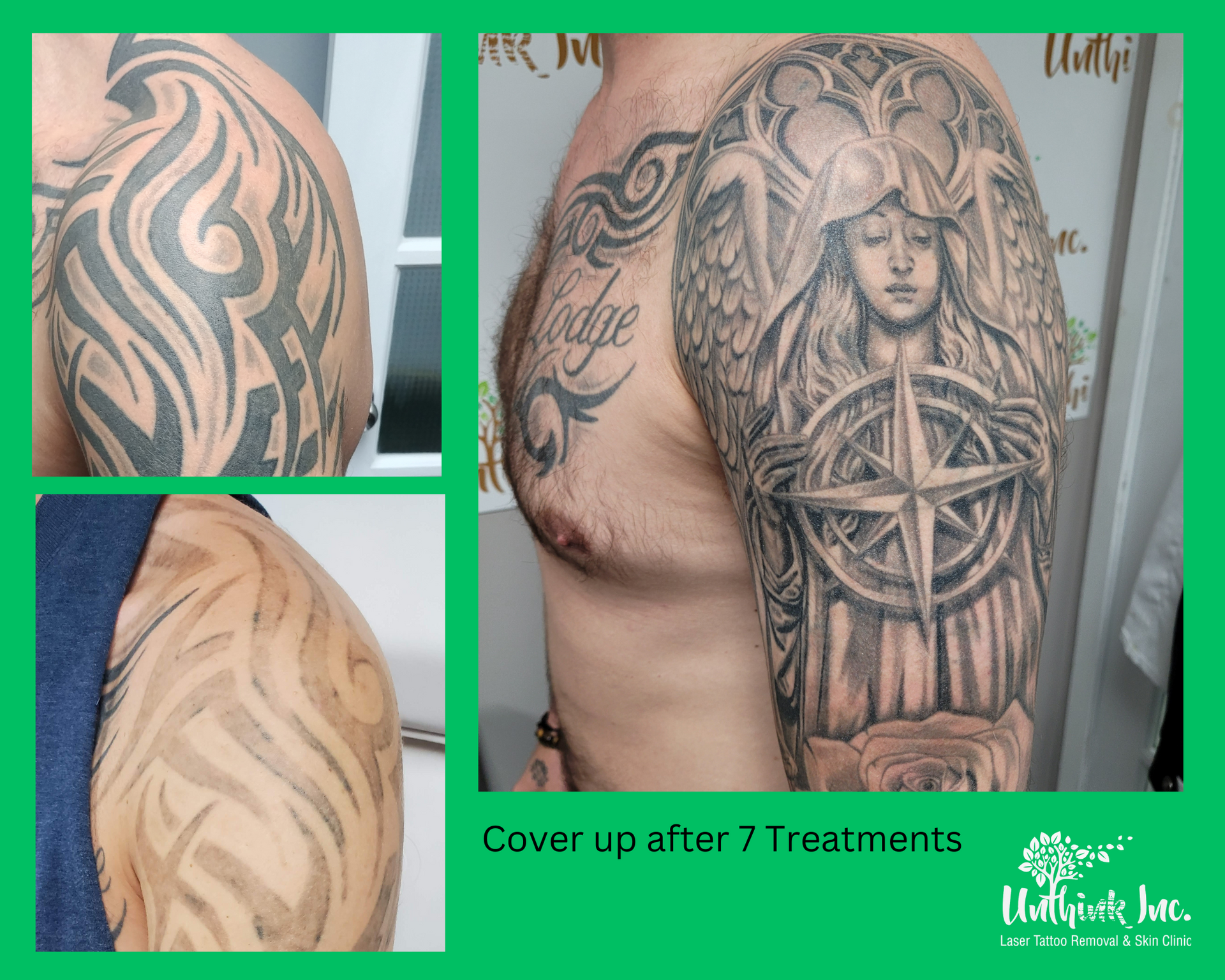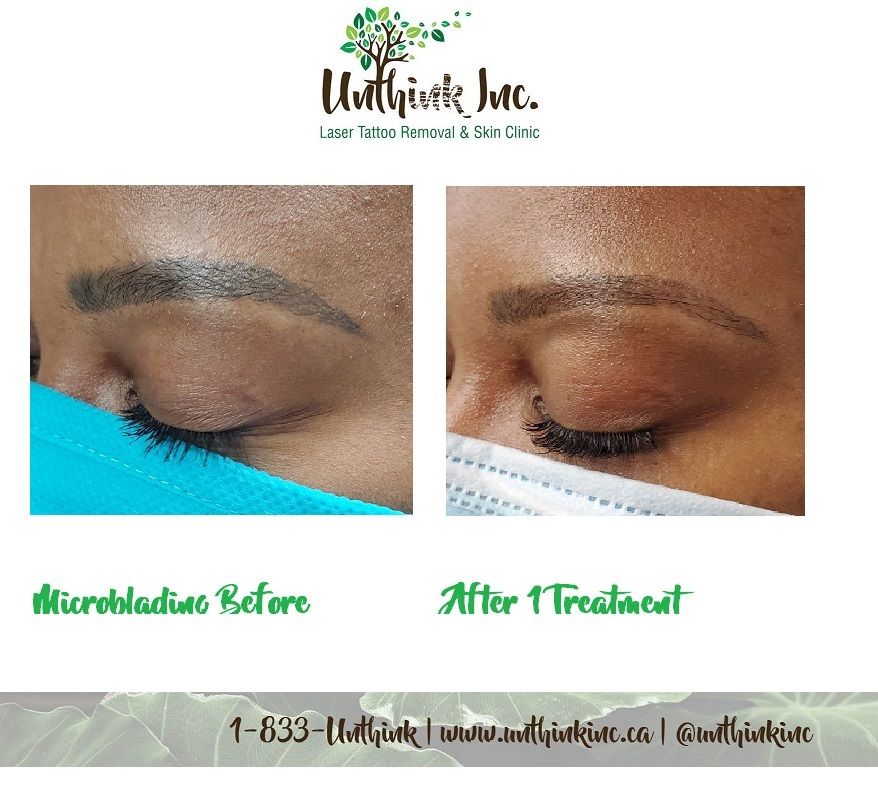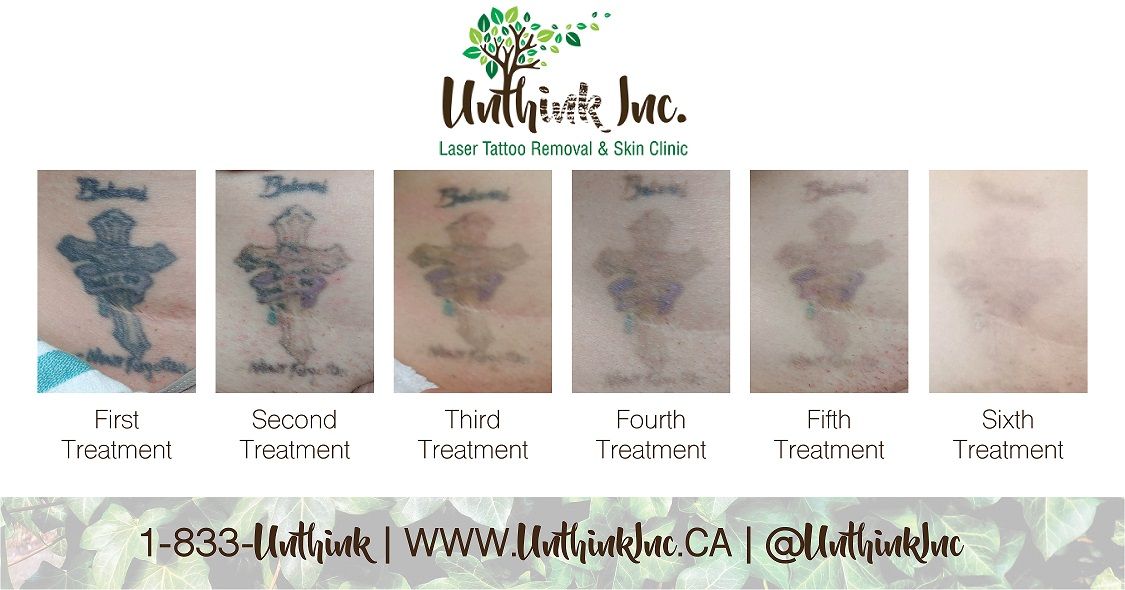Five Common Questions From Laser Tattoo Removal Clients
With laser tattoo removal there comes a tonne of questions from clients. Here are the top five questions that we get asked at Unthink Inc.
It is important that you ask your laser tattoo removal technician any and all questions you may have pertaining to laser tattoo removal. Your laser technician will be happy to answer them all to be sure that you understand everything that will happen before during and after your treatment.
What Do Laser Tattoo Removal Clients Ask?
At Unthink Inc., many of the questions we get asked have been asked many times before, and the most common ones we get asked include:
- What does the PicoWay laser feel like?
- How long does the process take?
- How much does laser tattoo removal cost?
- What can I expect for aftercare?
- What is my tattoo going to look like when I am done treatments?
Let’s Back Up and First Discuss The Picoway Laser
Before we answer these questions, we should educate you a little bit on the technology we use at Unthink Inc., to remove, fade, or alter unwanted tattoos.
At our clinic, we use the power of PicoWay, which uses photoacoustic laser technology. Using the photoacoustic effect ensures that skin irritations such as burning, redness or damage to the original pigment of the skin does not occur. These irritations happen very often with lasers that use the photothermal effect, as it uses heat to demolish an unwanted tattoo. To visualize the difference PicoWay can make, think of your tattoo removal as a rock that you’re trying to destroy. If we were to use a traditional tattoo removal laser that delivers pulses in nanoseconds, the rock would smash into pebbles, that would need to be smashed again and again until it turned to dust. This would take multiple treatments, and cause more pain due to the additional impact needed. With the PicoWay laser and it’s picosecond pulses, the rock turns to such tiny dust particles during each treatment.
Now that we understand the technology, we can dive deeper into the commonly asked questions by our laser tattoo removal clients.
#1 What does the PicoWay laser feel like?
A common analogy for the sensation of the laser pulses is the feeling of an elastic band snapping on your skin. To further reduce any discomfort from the PicoWay laser, Unthink Inc. has invested in a Zimmer Cryo Cooler to desensitize the nerve endings and make the process even more comfortable. The PicoWay laser promises better clearance, fewer treatments and less discomfort than traditional tattoo removal lasers that use heat.
#2 How long does the laser tattoo removal process take?
Contrary to popular belief, the PicoWay laser does not remove the ink. PicoWay works by breaking up and reducing the size of the large ink particles that your immune system and your lymphatic system find too large to dispose of naturally. The process of transporting those pulverized ink particles out of your body is called phagocytosis. Depending on the size, colour, and location of your tattoo, your body should do its job to flush those tiny particles out of your body within 6-8 weeks. The average number of sessions can be as few as 8, but it does vary from person to person. Fading a tattoo that is going to be covered up requires even fewer treatments, and sometimes only 4 sessions are required.
For more information on how long a laser tattoo removal process will take, click here .
#3 How much does laser tattoo removal cost?
At Unthink Inc., we post our pricing upfront on our website for everyone to see before the consultation. The only factors that will play into the cost of your unique removal are the size and if you want to fade or remove your tattoo.
Check out our affordable rates tab on our website by clicking here .
#4 What can I expect for aftercare with each laser tattoo removal treatment?
While most of the skin healing will be done naturally, your body’s lymphatic system works overtime 24-7 to remove the pulverized ink. It is very important to follow the aftercare instructions given by your technician. The aftercare of laser tattoo removal is quite similar to getting a tattoo put on your skin. Just like if you had a scab on your skin, the targeted area will heal from the inside out, and needs time to avoid scarring or irritation. We suggest the following with laser tattoo removal aftercare:
- Keep the area clean and dry. If you do get the targeted area wet, make sure you PAT dry as this will ensure that you do not rip off any skin or scabbing.
- Avoid showering the day of your session, and use a lower temperature/pressure water to avoid dehydration and damage from the shower. Do not soak in a bathtub, pool, hot tub, or any body of water for 48 hours.
- If you feel as though the area is inflamed or irritated, apply a cold compress to it. Do not use heat as this will cause more inflammation or irritation.
- If you plan on being out in the sun, make sure you wear a broad-spectrum sunscreen for at least three weeks after your session. This will ensure that the area does not burn or peel. At Unthink Inc., we always recommend that individuals wear sunscreen whenever they are outdoors to avoid skin cancer and UV damage to the skin.
- You can exercise after treatment, but make sure you wear loose-fitting clothing to avoid irritation. Have a light workout if you must. Your elevated core body temp to produce sweating, will compound the laser energy and make the effects unpredictable potentiating pigment changes.
- You may experience an itch on the targeted area, this is your immune system eliminating the newly found pulverized ink. Dehydration makes itching worse so moisturize a few days after your skin has healed until a few days before your next session.
- If you notice any blebs consult your technician to review aftercare of blisters. Use the supplied lances for controlled drainage. With some colors this is inevitable.
#5 What is my tattoo going to look like after treatment?
After your first couple of sessions, you will see muting and even some clearance of your tattoo. After the required number of treatments, you may see a faint remnant of your tattoo. At this stage, your body can remove the remainder of the particles and the ultimate goal is to return your skin to its natural color. Over time, your tattoo will completely fade away and, hopefully, you will not see any trace of the unwanted ink.
For more commonly asked questions that we receive here at Unthink Inc., please click here or call our clinic directly to speak with Jim.
